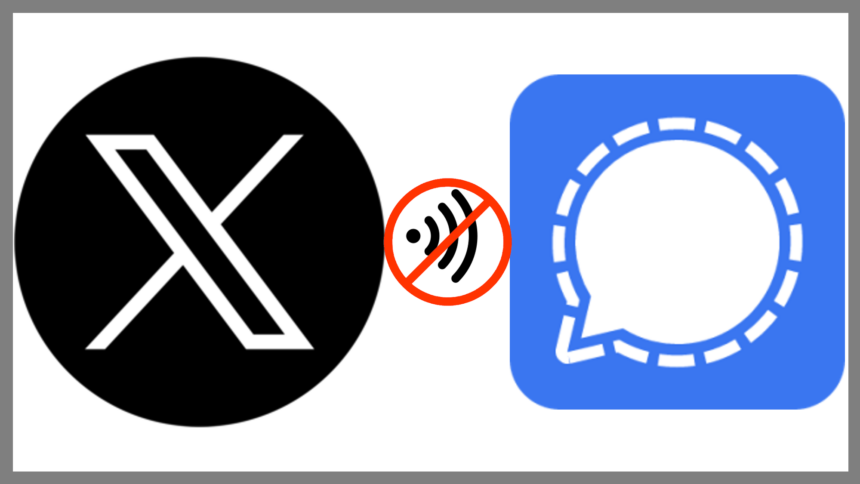You’re not alone if you’ve tried sharing a Signal.me link on X and received an error. The platform actively blocks links to Signal.me, the encrypted messaging app’s domain for secure messaging and user connections. This restriction affects direct messages, public posts, and user bios, preventing the use of Signal’s widely trusted encrypted communication links.
Attempts to post a Signal.me link result in different error messages:
- Direct Messages (DMs) fail with: “Message not sent. Sending Direct Message failed.”
- Public posts trigger a warning: “We can’t complete this request because this link has been identified by X or our partners as being potentially harmful.”
- User bios reject Signal.me links, making promoting the secure messaging option impossible.
However, Signal.org links remain accessible, raising questions about selective censorship and whether this move is a targeted block or a technical oversight.
What’s Happening & Why This Matters
X Restricts External Links Again
This isn’t the first time X has restricted links to external platforms. Under Elon Musk’s leadership, X has taken several steps to limit external content visibility, especially from services that compete with or challenge its control over information flow.

- Facebook, Instagram, and Mastodon links were banned in late 2022 for promoting competing social media platforms.
- Substack links faced restrictions, limiting discoverability for users relying on X to distribute newsletters.
- External URLs in posts were deprioritized in the feed, which Musk confirmed as a way to retain users within the platform.
Despite these actions, Signal is not a direct competitor to X. The app is a privacy-first messaging tool widely trusted by journalists, activists, and government workers who rely on end-to-end encryption (E2EE) for confidential communication. Its secure nature makes it a preferred tool for whistleblowers, including federal employees sharing sensitive information regarding government efficiency and oversight matters.
Censorship or Security Measure?
X has not provided an official reason for blocking Signal.me links, leading to speculation about the motivation behind the restriction. Several theories have emerged:
- Automated security policy: X might be using a blanket content moderation filter that mistakenly flagged Signal.me as suspicious.
- Deliberate suppression of encrypted communications: Some believe X intentionally blocks private messaging services to limit external user engagement.
- Privacy and political implications: Given Signal’s role in encrypted messaging, some speculate that X may act under government pressure or internal policy shifts.
Signal’s Role in Secure Communications
Signal is a widely respected messaging app designed to protect user privacy. It remains one of the few platforms that offer:
- True end-to-end encryption (E2EE), ensuring no third party—including Signal—can access messages.
- Anonymity features that allow journalists, activists, and whistleblowers to communicate securely.
- A nonprofit model means no ads, no tracking, and no financial incentive to mine user data.
Blocking links to Signal.me raises greater concerns about digital free speech, platform moderation policies, and the growing centralization of online communication control. If X continues to restrict access to private messaging tools, it could further push privacy-conscious users toward decentralized platforms.
TF Summary: What’s Next
X has not offered a clear explanation for blocking Signal.me links, leaving users to speculate on the real reason behind this restriction. Given past selective link censorship, this action raises concerns about privacy, free speech, and platform bias. If X continues restricting access to external services, it may push users seeking secure communications away from the platform entirely.
— Text-to-Speech (TTS) provided by gspeech


